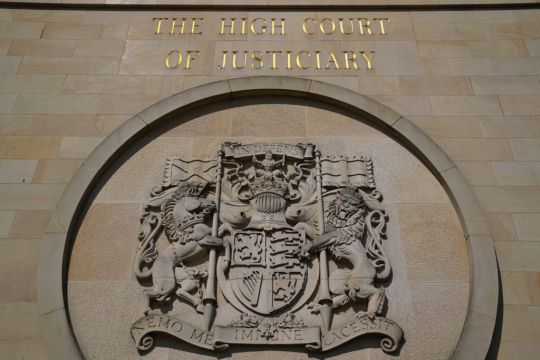Violence alleged to have been perpetrated by a paedophile ring was so extreme it could have caused fatal injuries, a court heard.
The trial of 11 people accused of child sex abuse heard regular “child rape nights” and “dog killing nights” were allegedly held in a Glasgow drugs den attended by heroin addicts.
Three child complainants made allegations that originally related to witchcraft but developed to include child sex abuse, including rape and attempted murder, the High Court in Glasgow heard.
Iain Owens, 45; Elaine Lannery, 39; Lesley Williams, 41; Paul Brannan, 41; Marianne Gallagher, 38; Scott Forbes, 50; Barry Watson, 47; Mark Carr, 49; Richard Gachagan, 45; Leona Laing, 50; and John Clark, 46, deny the charges.
Defending, Iain McSporran KC said the level of sexual abuse a child was allegedly subjected to could have been fatal – but three days after it allegedly happened, the girl was seen by a Cordia worker to be “happy and chatty”.
Mr McSporran said the boy who made allegations told police “I have been lying” and “that was a lie”, and officers “helped” with a list of names, while “guidelines” were not followed during interviews.
He said the addicts would have had to be “highly organised” to dispose of forensic evidence including a child bleeding “profusely”, and an adult who instigated the disclosures asked leading questions that would not have been allowed in court.
Mr McSporran said: “Just think of the risks taken by everyone participating in these repeated rape nights. The risk that one of their number would talk, crack under pressure or tell all to the police.
“How did one heroin addict persuade another to join in the rape?
“The risk that child would in fact die as a result not of being raped, but being anally raped by a number of men, which if evidence was to be believed, caused her to fall unconscious and bleeding heavily.
“You don’t have to be a doctor to work out that a child who has been subjected to that level of violence, rendered unconscious and bleeding, the risk of her dying must be huge.
“There would be forensic evidence all over the house. The murder in this community would be readily detected.”
His client, Clark, was cleared of attempted murder and torturing dogs.
Mr McSporran said: “There was no evidence of dogs being found in bins, or of neighbours complaining of the stench of rotting dogs.”
The defence advocate said a boy had made allegations he was subject to a similar attack to the one alleged to have happened to a female complainant – before confessing he was “just making it up”.
Mr McSporran criticised Police Scotland for their role in the investigation, and said: “Imagine if police had paid attention to the guidelines and didn’t interview him 16 or 17 times.”
He said the prosecution case suggested a “hint of prejudice against addicts”.
He added: “The prosecution is suggesting that these drug addicts have the organisational abilities to clear up damning forensic evidence, disposing of clothes, magic wands used by witches and wizards.”
But he said the allegations had spiralled from the initial disclosures about witchcraft.
Mr McSporran said a concerned adult who was subject to the initial disclosures used “a leading question of the kind which is not allowed in court”.
He added: “The accused are paying a heavy price for assumptions.”
An allegation the 11 accused used an Ouija board or similar object to “call on spirits and demons” causing the child victims to “believe that they could see, hear and communicate with spirits and demons” and making them take part in “witchcraft” has been dropped.
The trial, before Lord Beckett, continues.







